How to Profit from Digital Health's Boom in 2024
Explore how telemedicine and wearable devices are transforming healthcare while providing significant growth opportunities. For deeper insights, check out our stock research sites and Motley Fool stock picks.

Introduction to Digital Health: Transforming Healthcare Delivery
Welcome to the ongoing blog series, “Navigating the Future: Investing in Disruptive Technologies.” This series is dedicated to empowering you with the knowledge and tools needed to navigate the evolving landscape of disruptive technologies, with a focus on long-term growth and generational wealth. Today, we delve into the realm of digital health, a sector that is not only revolutionizing healthcare delivery but also presenting substantial investment opportunities.
Digital health encompasses a broad spectrum of technologies designed to enhance health outcomes and improve healthcare delivery through digital tools and data. Key areas within digital health include telemedicine, mobile health apps, wearable devices, and electronic health records (EHRs). These technologies collectively aim to create a more efficient, patient-centered healthcare system that is both accessible and effective.
Telemedicine has redefined healthcare by enabling remote consultations, diagnostics, and treatments, making healthcare more accessible, especially in underserved areas. Mobile health apps empower patients to actively manage their health and provide valuable data to healthcare providers. Wearable devices like smartwatches and fitness trackers offer real-time monitoring of vital signs and physical activity, enabling early detection of potential health issues. Electronic health records (EHRs) digitize patient records, facilitating easier access and sharing of patient information among healthcare providers.
The relevance and importance of digital health have been magnified by the COVID-19 pandemic, which underscored the need for efficient, remote healthcare solutions. As we navigate through this series, we will explore the specific technologies driving the digital health revolution and their investment potential. This journey will equip you with the insights needed to build a resilient investment portfolio that can withstand market volatility and capitalize on the transformative power of digital health.
Key Technologies in Digital Health
The digital health revolution is driven by several key technologies, each contributing to a more efficient, patient-centric healthcare system and offering unique investment opportunities.
Telemedicine
Telemedicine has transformed healthcare by enabling remote consultations, diagnostics, and treatments. This technology, exemplified by companies like Teladoc Health (NYSE: TDOC), has become indispensable, particularly during the COVID-19 pandemic. Telemedicine improves access to care, especially in underserved areas, and reduces the burden on healthcare facilities. If you are interested in investing in a technology that addresses healthcare accessibility and efficiency, I encourage you to explore telemedicine platforms.
Mobile Health Apps
Mobile health apps are powerful tools that range from fitness tracking to chronic disease management. Notable examples include Apple’s Health app and Fitbit’s offerings, now part of Google (NASDAQ: GOOGL). These apps empower patients to manage their health actively and provide valuable data to healthcare providers. If you are looking for investments in user-centric health management solutions, mobile health apps present a compelling opportunity.
Wearable Devices
Wearable devices, such as smartwatches and fitness trackers, monitor vital signs and physical activity in real-time. Google’s integration of Fitbit’s technology demonstrates the potential of wearables in digital health. These devices enable continuous health monitoring, early detection of health issues, and personalized health interventions. Consider wearable technology if you are interested in innovations that provide real-time health insights and proactive healthcare solutions.
Electronic Health Records (EHRs)
EHRs digitize patient records, making it easier for healthcare providers to access and share patient information. Companies like Cerner Corporation (NASDAQ: CERN) lead in providing EHR solutions that improve care coordination, reduce medical errors, and enhance patient outcomes. EHRs are essential for a seamless, interconnected healthcare system. If your investment strategy includes technologies that streamline healthcare administration and improve patient safety, EHR solutions are worth investigating.
Each of these technologies not only contributes to a more efficient healthcare system but also presents significant investment potential. By incorporating these innovations into your portfolio, you position yourself to benefit from the rapid advancements in digital health.
Leading Companies and Market Outlook in Digital Health
Teladoc Health (NYSE: TDOC) stands at the forefront of the telemedicine revolution. Offering a comprehensive suite of virtual healthcare services, Teladoc Health provides remote consultations, diagnostics, and treatment options. This company has become indispensable, particularly in the wake of the COVID-19 pandemic, enabling accessible healthcare while reducing strain on traditional medical facilities. By integrating primary care, mental health support, and chronic disease management into a single platform, Teladoc Health ensures patients receive continuous, coordinated care, making it a cornerstone of the digital health landscape.
Apple Inc. (NASDAQ: AAPL) has significantly impacted digital health through its innovative wearable devices. The Apple Watch, with its advanced health monitoring capabilities, has transformed the way individuals track fitness and manage wellness. Features such as heart rate monitoring, ECG readings, and blood oxygen level tracking provide users and healthcare providers with invaluable health data. Apple’s Health app further integrates personal health management by aggregating data from various sources, empowering users to take proactive steps towards better health.
Fitbit, now part of Google (NASDAQ: GOOGL), specializes in wearable fitness trackers that monitor physical activity, sleep patterns, and other vital health metrics. The integration with Google’s AI and data analytics capabilities promises to elevate Fitbit’s offerings, enabling more personalized health interventions. By harnessing Google’s expertise in AI, Fitbit devices can offer deeper insights and predictive analytics, enhancing user engagement and health outcomes.
Cerner Corporation (NASDAQ: CERN) leads the field of Electronic Health Records (EHRs), providing solutions that digitize patient records and streamline healthcare operations. Cerner’s EHR systems facilitate better care coordination, reduce medical errors, and enhance patient safety. By ensuring that healthcare providers have real-time access to comprehensive patient data, Cerner supports more informed decision-making and improved care delivery.
Livongo, owned by Teladoc Health (NASDAQ: TDOC), focuses on chronic disease management through personalized health coaching and real-time data monitoring. Livongo’s platform addresses conditions such as diabetes and hypertension, providing users with actionable insights and tailored support. The acquisition by Teladoc Health has created a robust digital health ecosystem capable of addressing a wide range of healthcare needs, from acute care to chronic disease management.
The digital health market is set for substantial growth, driven by increasing healthcare costs, an aging population, and the prevalence of chronic diseases. The global digital health market is expected to grow at a compound annual growth rate (CAGR) of around 28% over the next few years. Key trends include the widespread adoption of telemedicine, the proliferation of wearable devices, and significant advancements in AI and data analytics.
Investing in digital health presents numerous opportunities for long-term growth. Telemedicine platforms like Teladoc Health offer scalable solutions to meet growing demand. Wearable technology from companies like Apple and Fitbit continues to innovate, providing richer health data and more engaging user experiences. Health data analytics is another promising area, where AI-driven insights can lead to more personalized and effective healthcare solutions. Chronic disease management platforms such as Livongo provide targeted interventions, improving patient outcomes and reducing healthcare costs.
However, potential risks include regulatory hurdles, data privacy concerns, and the rapid pace of technological change, which could lead to obsolescence. Investors should diversify their portfolios across different segments of digital health to mitigate these risks, ensuring a balance between innovation and stability. By staying informed and strategically positioning themselves, investors can capitalize on the transformative potential of digital health technologies.
Embracing Digital Health for Long-Term Growth
Digital health technologies such as telemedicine, mobile health apps, wearable devices, and EHRs are revolutionizing the healthcare landscape. These innovations not only improve health outcomes but also offer substantial investment opportunities. By integrating these technologies into your investment strategy, you position yourself to harness long-term growth and achieve financial independence.
Staying ahead of market trends and technological advancements is crucial. As healthcare costs rise, the population ages, and chronic diseases become more prevalent, the demand for digital health solutions will only increase. This creates a fertile ground for investments that can yield significant returns over time.
Diversification is key to mitigating risks. While digital health presents promising avenues, balancing your portfolio with high-conviction investments across various sectors ensures resilience against market volatility. By incorporating digital health technologies, you not only diversify but also tap into a sector poised for exponential growth.
Consider this an invitation to embrace disruptive technologies. Take bold steps toward securing a prosperous future. By doing so, you contribute to building generational wealth and join a community of forward-thinking investors committed to making informed, impactful decisions.
If you are interested in exploring digital health investment opportunities, I encourage you to research companies like Teladoc Health, Apple, and Cerner Corporation. You can also delve into emerging trends such as AI and data analytics in healthcare. By taking these steps, you position yourself at the forefront of an exciting and transformative industry.
Posts in this series
- How to Profit from AI's Explosive Growth in 2024
- How to Profit from the Self-Driving Car Revolution in 2024
- How to Profit from Biotech's Biggest Trends in 2024
- How Blockchain Can Revolutionize Your Industry
- How to Profit from Quantum Computing in 2024
- Top Green Energy Stocks: Profit from 2024's Clean Power Boom
- How to Profit from 2024's Disruptive Tech Breakthroughs
- How to Profit from 5G: Top Stocks & Strategies for 2024
- How to Future-Proof Your Cybersecurity Investments in 2024
- How to Boost Your E-commerce ROI in 2024
- How to Capitalize on EdTech's 2024 Investment Boom
- How to Build a Winning Fintech Portfolio in 2024
- How to Profit from IoT: Top Investment Strategies for 2024
- How to Profit from Digital Health's Boom in 2024
- How to Profit from Space Investing in 2024
- How to Invest in Disruptive Tech for Gains in 2024
- How to Profit from Tech Disruption in 2024
- How to Profit from the Robotics Revolution
- How to Profit from Smart City Tech Trends in 2024
- How to Profit from Tech Disruption Despite Market Risks
🧠 Thinking Deeper
- ☑️ Think like a business owner when you invest, focusing on long-term value creation.
- ☑️ Learn to manage risk, not avoid it entirely. Some risk is necessary for growth.
- ☑️ Be highly selective in your investments. Waiting for the perfect pitch often yields better results than swinging at everything.
- ☑️ Don't blindly diversify. Concentrate on your best ideas if you have conviction.
📚 Wealthy Wisdom
- ✨ Investing should be more like watching paint dry or watching grass grow. If you want excitement, take $800 and go to Las Vegas. - Paul Samuelson
- ✔️ The stock market is filled with individuals who know the price of everything, but the value of nothing. - Philip Fisher
- 🌟 The most important quality for an investor is temperament, not intellect. - Warren Buffett
- 🚀 The stock market is a device for transferring money from the impatient to the patient. - Warren Buffett

